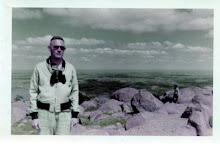Tuesday, March 28, 2006
Secret detention: new practice: held in “black sites”
 Unlike extraordinary rendition, secret detention does not have clear predecessors in U.S. intelligence history. Instead, it appears to be a new practice for the U.S., in which individuals are held in “black sites” run entirely off the radar of normal civilian or military procedures. Such detentions are not monitored by the International Committee of the Red Cross, and they apparently involve transfers of prisoners from site to site to evade detection. Thus far, no one has argued that unacknowledged incommunicado detention by U.S. agents was authorized by presidents of a bygone era, or that the practice has long been an essential tool in the fight against terrorism. This is not surprising – clear norms exist to proscribe secret detentions under international human rights law. In the European, Inter-American, and United Nations human rights systems, a deep jurisprudence has developed against this practice – based on the lessons of Latin America’s “dirty war” – a practice more properly called enforced disappearance.
Unlike extraordinary rendition, secret detention does not have clear predecessors in U.S. intelligence history. Instead, it appears to be a new practice for the U.S., in which individuals are held in “black sites” run entirely off the radar of normal civilian or military procedures. Such detentions are not monitored by the International Committee of the Red Cross, and they apparently involve transfers of prisoners from site to site to evade detection. Thus far, no one has argued that unacknowledged incommunicado detention by U.S. agents was authorized by presidents of a bygone era, or that the practice has long been an essential tool in the fight against terrorism. This is not surprising – clear norms exist to proscribe secret detentions under international human rights law. In the European, Inter-American, and United Nations human rights systems, a deep jurisprudence has developed against this practice – based on the lessons of Latin America’s “dirty war” – a practice more properly called enforced disappearance.Margaret Satterthwaite is Assistant Professor of Clinical Law at NYU School of Law and Faculty Director of the Center for Human Rights and Global Research.
UPitt
Subscribe to Comments [Atom]

